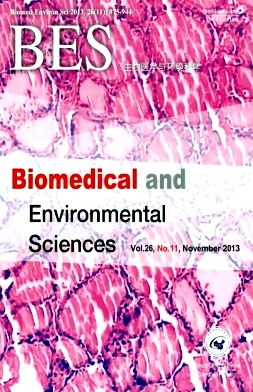Resveratrol Induces Apoptosis and Autophagy in T-cell Acute Lymphoblastic Leukemia Cells by Inhibiting Akt/mTOR and Activating p38-MAPK
doi: 10.3967/bes2013.019
-
Key words:
- Resveratrol /
- Apoptosis /
- Autophagy /
- T-cell acute lymphoblastic leukemia /
- Akt/mTOR /
- p38-MAPK
Abstract: Objective To explore the effects of resveratrol-induced apoptosis and autophagy in T-cell acute lymphoblastic leukemia (T-ALL) cells and potential molecular mechanisms.
Methods The anti-proliferation effect of resveratrol-induced, apoptosis and autophagy on T-ALL cells were detected by using MTT test, immunofluorescence, electronic microscope, and flow cytometry, respectively. Western blotting was performed for detecting changes of apoptosis-associated proteins, cell cycle regulatory proteins and state of activation of Akt, mTOR, p70S6K, 4E-BP1, and p38-MAPK.
Results Resveratrol inhibited the proliferation and induced apoptosis and autophagy in T-ALL cells in a dose and time-dependent manner. It also induced cell cycle arrest at G0/G1 phase via up regulating cyclin-dependent kinase (CDK) inhibitors p21 and p27 and down regulating cyclin A and cyclin D1. Western blotting revealed that resveratrol significantly decreased the expression of antiapoptotic proteins (Mcl-1 and Bcl-2) and increased the expression of proapoptotic proteins (Bax, Bim, and Bad), and induced cleaved-caspase-3 in a time-dependent manner. Significant increase in ratio of LC3-II/LC3-I and Beclin 1 was also detected. Furthermore, resveratrol induced significant dephosphorylation of Akt, mTOR, p70S6K, and 4E-BP1, but enhanced specific phosphorylation of p38-MAPK which could be blocked by SB203580. When autophagy was suppressed by 3-MA, apoptosis in T-ALL cells induced by resveratrol was enhanced.
Conclusion Our findings have suggested that resveratrol induces cell cycle arrest, apoptosis, and autophagy in T-ALL cells through inhibiting Akt/mTOR/p70S6K/4E-BP1 and activating p38-MAPK signaling pathways. Autophagy might play a role as a self-defense mechanism in T-ALL cells treated by resveratrol. Therefore, the reasonable inhibition of autophagy in T-ALL cells may serve as a promising strategy for resveratrol induced apoptosis and can be used as adjuvant chemotherapy for T-ALL.
| Citation: | GE Jiao, LIU Yan, LI Qiang, GUO Xia, GU Ling, MA Zhi Gui, ZHU Yi Ping. Resveratrol Induces Apoptosis and Autophagy in T-cell Acute Lymphoblastic Leukemia Cells by Inhibiting Akt/mTOR and Activating p38-MAPK[J]. Biomedical and Environmental Sciences, 2013, 26(11): 902-911. doi: 10.3967/bes2013.019 |







 Quick Links
Quick Links
 DownLoad:
DownLoad: